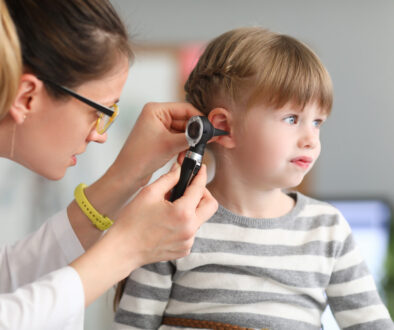Top 10 Signs Your Child Has a Speech Disorder
All parents want to do everything in their power to ensure their sons and daughters have the best possible academic start in life. This involves researching the best schools, discovering the most reputable day cares, and providing toys that are educational as well as entertaining.
But how many parents watch for the early signs of a speech disorder?
If your child has a speech disorder, he or she is at a greater risk of performing below grade level. This not only equates to problems reading and writing: speech disorders can devastate your child’s self-esteem, causing him or her to avoid school. The good news is speech therapy is incredibly successful! In order to achieve the maximum benefit though, your child should be treated as soon as signs of a speech disorder first appear.
Following are 10 signs that your child has a speech disorder and needs speech therapy:
1. YOUR CHILD STUTTERS.
Stuttering is an obvious indication that your child needs speech therapy. Children who stutter may repeat whole words (He-he-he- ran to the door) or the first syllable of a word (j-j-jump). Sometimes stuttering children may avoid talking altogether.
2. YOUR CHILD HAS AN INCONSISTENT VOICE QUALITY.
Not all signs of a speech disorder have to do with vowels or consonants. Often, children who have a hoarse voice or inability to control volume may need early intervention. They also may have trouble emphasizing the correct syllable of a word, even though they pronounce a word correctly (such as saying BA- NAN-A instead of ba-NAN-a).
3. YOUR CHILD DOESN’T INTERACT WITH OTHER CHILDREN.
If your baby doesn’t smile or show acknowledgement when someone is speaking or playing, you should consider scheduling an appointment with a speech therapist.
4. YOUR CHILD DOESN’T BABBLE.
Between four and seven months of age, your child should be babbling or making “nonsense” noises. These sounds are important because they will help your son or daughter learn words.
5. YOUR CHILD SHOWS SPEECH INCONSISTENCY.
For example, your child may pronounce a word correctly the first time but incorrectly the second or third time. They may also place gaps between syllables (run…ning).
6. YOUR CHILD HAS A CLEFT PALATE OR OTHER STRUCTURAL PROBLEMS WITH THE MOUTH.
Problems with the lips, jaw or tongue can make it difficult for children to speak clearly and consistently. This can have a devastating effect on their academic progress.
7. YOUR CHILD DOESN’T GESTURE.
Your child should be using gestures such as waving and pointing by the time he or she is seven to twelve months old.
8. YOUR CHILD DOESN’T SPEAK.
When your child doesn’t speak a lot – or at all – this is a red-flag warning. You should also be concerned if your child says fewer than 50 words by the time he or she is two years old.
9. YOUR CHILD HAS SEVERAL EAR INFECTIONS.
You may not equate ear infections with speech disorders, but extensive and chronic ear infections can cause fluid in the middle ear to cause temporary hearing loss. If this happens repeatedly, your child’s speech may be delayed.
10. YOUR CHILD HAS SOME TYPE OF HEARING LOSS OR HEARING DISORDER.
In order to create sounds properly, your child needs to be able to hear them properly. Hearing loss, particularly in the early years, can cause more extensive speech problems further on down the line. If your child has even partial hearing loss, it’s important to work closely with an audiologist speech therapist to be sure he or she has all the skills needed to help them succeed in school and in life.
We can help your child overcome speech problems
Raleigh Capitol Ear, Nose and Throat offers a wide variety of voice and speech services including treatment for:
- Voice disorders
- Articulation and phonology – treatment designed to improve the dynamic production of specific sounds (e.g. /k/ in “cup”)
- Aural Rehabilitation for Children with Hearing Loss – treatment designed to assist individuals with auditory disabilities improve their communication
- Articulation and language disorders
We have the information you need
Following are some articles with extensive educational information on common communication disorders and how they are treated. We encourage you to contact us to schedule an appointment if you have questions or concerns.
How to Treat Stuttering in Children
Common Communication Disorders
You can also track your child’s progress by referring to these hearing development milestones for infants and children.
Raleigh Capitol Ear, Nose, and Throat is the area’s premiere physician-owned ENT practice with six convenient locations throughout Wake County. Our board-certified physicians have extensive experience in treating both common and complex cases to help adults and children alike. For more information or to schedule an appointment, contact us.




